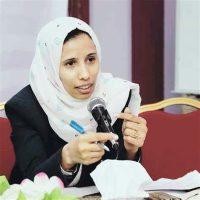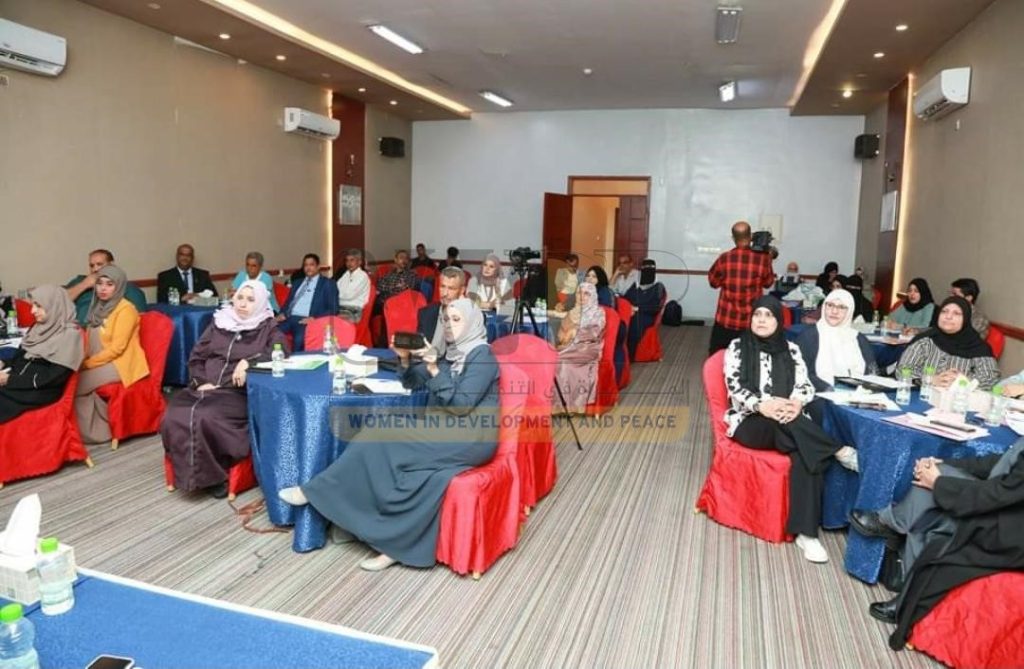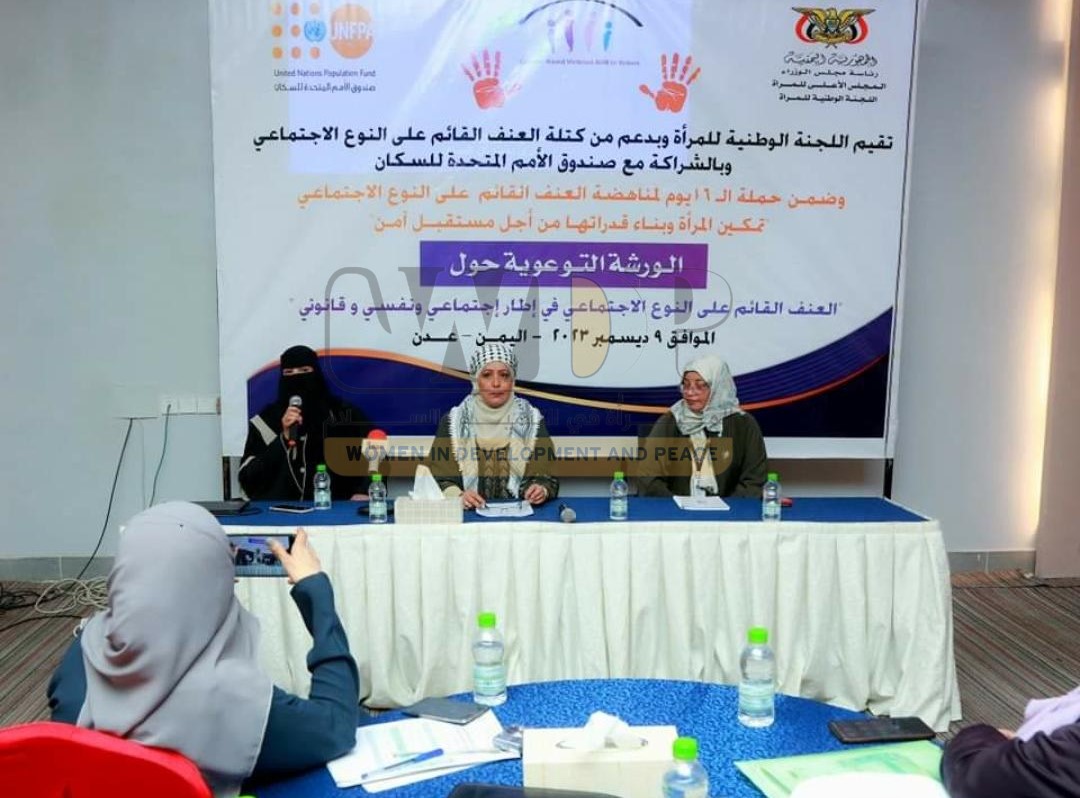Women in Development and Peace – Haneen Al-Wahsh
Yemeni women face challenging circumstances, compounded by decades of armed conflict and a legacy of domestic violence. Reports from international organizations indicate that Yemen remains one of the worst places for women to live globally. The prevalence of gender-based violence—physical, verbal, psychological, sexual, and economic—continues to rise. Additionally, Yemen grapples with the worst humanitarian crisis in the world, further exacerbating the situation. In 2017, Yemen was ranked as the most unfavorable place for women.
Images of Violence

Journalist and human rights activist Widad Al-Badawi stated, “One of the most prominent forms of violence against women is religious violence. Women, especially those working in civil society, activists, and rights advocates, are subjected to incitement.”
She further added, “Other forms of violence against women include exclusion from leadership positions within authorities. Additionally, cyberbullying on social media is increasingly common in today’s era. We must not forget the impact of legal hindrances and the denial of women’s rights. Women bear the burden of conflict, even though they are not the creators of conflict but rather the architects of peace.”
Al-Badawi attributes the rise in domestic violence against women to the ongoing armed conflict. She explains, “Yemeni men often deal with daily societal challenges with pride. Whether it’s unemployment or having their salaries confiscated, they resort to venting their anger physically on women within the confines of their homes.” She emphasizes that this is one of the primary causes of violence in its various forms and contributes to the increasing divorce rates
Women Alone
The response “Women alone face domestic violence” was the most common answer among activists in our survey regarding interventions aimed at combating domestic violence against women.
Dr. Shafiqah Al-Wahsh, Chair of the National Women’s Committee, refutes the societal assumption. She believes that many organizations, in coordination with the National Women’s Committee, have adopted programs and activities to combat domestic violence against women.
Dr. Al-Wahsh stated, “The National Women’s Committee collaborates with partners working on two fronts: awareness and psychological rehabilitation. Additionally, they provide material support through projects that assist women who have survived social violence.”
Despite this, international reports indicate a decline in the interest of many responders to implement gender-based violence interventions due to the risks and difficulties associated with such interventions.
Confrontation Challenges
Journalist and human rights activist Widad Al-Badawi points to a number of challenges facing interventions aimed at reducing violations against women; the most prominent of which are: the absence of a parliament that has been in a state of dysfunction since the conflict began in the country, a government unable to reach various segments due to the multiplicity of authorities, the lack of established and effective state institutions in this regard – given that official bodies are responsible for formulating regulations, laws, and legislation related to combating violence against women – along with other problematic issues that have led to the disruption of some civil society tasks and interventions.
Al-Badawi recommends that civil society not cease its activities and interventions in combating these phenomena, shedding light on them, and making fundamental changes and treatments if allowed, while emphasizing that there are many dimensions to implementing interventions of this kind, supporting the peace process within families and communities, and preserving women’s dignity.
She further emphasizes that civil society is capable of bringing about positive change if it works seriously and responsibly, in a manner that does not contradict traditions, customs, and religion, and does not harm humanity and dignity, while preserving the humanity of everyone, men and women.
Civil Society Interventions
International Women’s Day on March 8 coincided with the launch of a number of local and international organizations’ interventions and activities aimed at curbing the violations faced by Yemeni women. One of the most prominent programs was recently launched by the Yemeni Women’s Union in Aden, under the slogan “I Am Not Alone.” It consists of a series of awareness sessions on judicial services and civil laws specific to women in the Yemeni constitution, funded by the Global Common Ground organization.
According to project organizers, it involved several stages, starting with capacity-building for over 100 abused women in awareness, legal education, and human rights. These women were informed about local and international laws that safeguard their rights against those perpetrating violence against them.
In February of last year, the Center for Economic Studies and Media, through visual communication technology (Zoom), organized a training program on information verification and combating misinformation in cases of gender-based violence in Yemen. The program is conducted by the center in collaboration with several specialized media networks and platforms focused on women’s issues in Yemen.
The program aims to equip 60 journalists with skills in fact-checking, information verification, and combating deception related to gender-based violence. This initiative is part of the project to amplify women’s voices through media, implemented by the center across ten Yemeni governorates. It seeks to empower journalists and enhance their capacities to contribute effectively to the media discourse in Yemen, producing authentic and unbiased journalistic content that sheds light on women’s stories and the violations they face.
In Al-Makha district, Taiz Governorate, the organization DEEM is implementing a project aimed at psychologically rehabilitating abused women. In addition, they empower these women through several specialized projects by conducting training courses in sewing and embroidery, with sewing machines provided at the end of each course.
Furthermore, the National Women’s Committee, in partnership with United Nations entities (UN WOMEN-UNDP-UNFPA-OHCHR), celebrated International Women’s Day on March 8th under the theme “Invest in Women: Accelerate Progress.” The event witnessed participation from various government bodies, departments, UN representatives, international organizations, civil society, and women. Several female leaders from diverse fields supporting women’s issues in Yemen were also honored.


